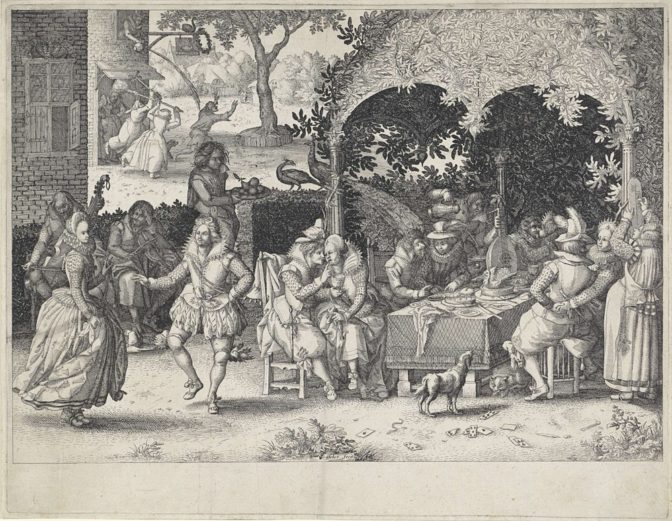The legitieme portie (legitimate portion) is the part of the inheritance that children are legally entitled to.
Under Dutch law, at least since the 1800s, children cannot be disowned by their parents completely, even if the parent makes up a will. Their legitimate portion is half of what they would have inherited if there was no will. This is different than in Anglo-Saxon law, where the testator is free to divide their estate as they see fit, including disowning their children.
For example, if a father has three children and disowns one of them in his will, that child can then claim 1/6th of the inheritance as their legitieme portie (half of the 1/3 share he would normally be entitled to). The remaining 5/6th would be divided among the other two children.

Prodigal son wastes his inheritance. Credits: Claes Jansz. Visscher, 1608, collection Rijksmuseum (public domain)

